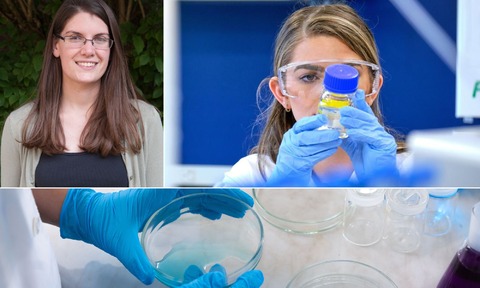LAB ROUNDUP 22 May – data conversion, DNA synthesis, BBB, preeclampsia testing and more
21 May 2023

Biotech industry R&D Cloud Benchling called for standardised instrument data conversion in the scientific community, to an audience at the recent Bio-IT World Conference.
Benchling is a member of the Allotrope Foundation Partner Network and is also creating a library of open source converters that format instrument-generated data to the Allotrope Simple Model standard to help organisations to adopt these standards in practice. Making these converters available in the open source, will enable companies to standardise and connect instrument data within and across their labs, claims Benchling. It stated that help ensure industry adoption of FAIR (findable, accessible, interoperable, and reusable) data.
Pharma nanotech firm leon-nanodrugs GmbH has appointed Dr. Setu Kasera as Chief Scientific Officer, Kasera succeeds Dr. Frank Stieneker, who developed the core of LEON’s innovative reactor technology. The new CSO had been Head of Science and Engineering since October 2022. Stieneker continues as an exclusive advisor.
Evonetix has announced that DNA synthesised using its unique semiconductor chip technology was delivered to the Department of Chemical Engineering and Biotechnology at the University of Cambridge. DNA was delivered to Dr Jenny Molloy, Co-chair of the Engineering Biology Interdisciplinary Research Centre at the University of Cambridge. The company’s desktop DNA synthesis platform is being developed to enable scientists to synthesise long DNA in its own lab. Evonetix Chief Technology Officer Dr Matt Hayes added: “This milestone demonstrates that our platform can successfully synthesise DNA using our patented thermally controlled semiconductor chip technology and will allow us to begin expanding the scale of our synthesis.”
Specialist preclinical contract research organisation (CRO) Cellomatics Biosciences has launched INNOBEX an in vitro model of the blood brain barrier (BBB) for research into neurodegenerative diseases. Developed and prepared in-house the model can be used with assays including TEER (transendothelial electrical resistance) and FITC Dextran to assess the permeability of the BBB and to determine if a drug is acting on the cells of the barrier to affect the permeability. Other assay applications for INNOBEX include immunofluorescence or immunohistochemistry, allowing clients to assess protein interactions or distribution of cells within the barrier.
Editor and former carer Christina Neal’s Dementia Help magazine, launched ahead of Dementia Action Week will the first consumer magazine for dementia carers. This new bi-monthly digital publication will be free to download from the Dementia Help website, sent to an email list of 15,000 dementia carers and promoted to the charity’s 17,500 followers.
The U.S. Food and Drug Administration (FDA) has cleared the Thermo Fisher Scientific biomarkers B·R·A·H·M·S PlGF plus KRYPTOR and B·R·A·H·M·S sFlt-1 KRYPTOR. The company said these were the first immunoassays to receive breakthrough designation and clearance for the risk assessment and clinical management of preeclampsia, a severe pregnancy complication. The pregnancy and postpartum period life-threatening blood pressure disorder is the leading cause of maternal and foetal mortality and morbidity worldwide; rates that have increased rapidly in the US over a decade. The assays will help risk assessment of women hospitalised for hypertensive disorders of pregnancy to determine risk of progressing to preeclampsia with severe features within two weeks. TFS chief medical officer at Thermo Fisher Scientific Alan Sachs said: “Today’s clearance of these breakthrough biomarkers will have a significant impact on prognosis and treatment for thousands of women at risk for preeclampsia every year in the U.S.”
H.E.L Group, developer and manufacturer of laboratory tools for process optimisation, safety, and scale-up, has appointed former Head of Research Services at UK Biocentre Hasan Hallaq as its European Sales Director, Victoria Ordsmith as Director of Marketing and Sarennah Longworth-Cook as Director of People.
Health science solutions company Revvity (previously affiliated to PerkinElmer) today announced a new licence agreement with AstraZeneca for the technology underlying its Pin-point modular gene editing platform. The system and base editing technology are designed to enable editing without unintended impact on cell viability or functionality. While traditional CRISPR technologies create double-stranded breaks in DNA, Pin-point uses a modified Cas enzyme that only nicks one strand of the DNA, permitting a more controlled approach to gene disruption and base correction.

